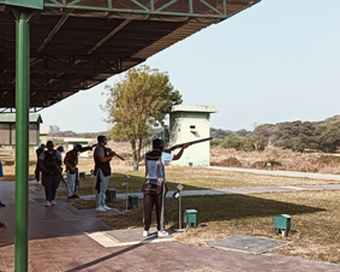 PM Modi visit USA
PM Modi visit USA Only the mirror in my washroom and phone gallery see the crazy me : Sara Khan
Only the mirror in my washroom and phone gallery see the crazy me : Sara Khan Karnataka rain fury: Photos of flooded streets, uprooted trees
Karnataka rain fury: Photos of flooded streets, uprooted trees Cannes 2022: Deepika Padukone stuns at the French Riviera in Sabyasachi outfit
Cannes 2022: Deepika Padukone stuns at the French Riviera in Sabyasachi outfit Ranbir Kapoor And Alia Bhatt's Wedding Pics - Sealed With A Kiss
Ranbir Kapoor And Alia Bhatt's Wedding Pics - Sealed With A Kiss Oscars 2022: Every Academy Award Winner
Oscars 2022: Every Academy Award Winner Shane Warne (1969-2022): Australian cricket legend's life in pictures
Shane Warne (1969-2022): Australian cricket legend's life in pictures Photos: What Russia's invasion of Ukraine looks like on the ground
Photos: What Russia's invasion of Ukraine looks like on the ground Lata Mangeshkar (1929-2022): A pictorial tribute to the 'Nightingale of India'
Lata Mangeshkar (1929-2022): A pictorial tribute to the 'Nightingale of India' PM Modi unveils 216-feet tall Statue of Equality in Hyderabad (PHOTOS)
PM Modi unveils 216-feet tall Statue of Equality in Hyderabad (PHOTOS)India Open Competition in Shotgun, organised by the National Rifle Association of India (N
- Hockey India names Amir Ali-led 20-man team for Junior Asia Cup
- Harmanpreet Singh named FIH Player of the Year, PR Sreejesh gets best goalkeeper award
- World Boxing medallist Gaurav Bidhuri to flag off 'Delhi Against Drugs' movement on Nov 17
- U23 World Wrestling Championship: Chirag Chikkara wins gold as India end campaign with nine medals
- FIFA president Infantino confirms at least 9 African teams for the 2026 World Cup
Boko Haram violence leaves over 7 million facing starvation Last Updated : 25 Feb 2017 10:18:42 AM IST 
(File Photo)
Over 7 million people are starving in Cameroon, Chad, Niger and Nigeria as a result of violence by the Boko Haram terror group, media reported.
Coinciding with a humanitarian conference in Oslo to mobilize funds for that region, the FAO on Friday noted that the situation has deteriorated "drastically" in the Lake Chad basin as instability persists, media reported.
The number of people affected by severe food insecurity has doubled to more than seven million, compared with 3.4 million in June 2015.Among them are 515,000 children suffering from acute malnutrition, which if left untreated, can pose serious problems for their development and even lead to death.
FAO called for "swift and decisive" action by the international community to protect the lives of millions of families dependent on agriculture, livestock and fisheries.
"Our collective efforts cannot be limited to merely avoiding massive famine. They need to allow people to return to a dignified life. And supporting agriculture is the key to both," said FAO emergency director Dominique Burgeon.IANS For Latest Updates Please-
Join us on
Follow us on








172.31.16.186







